My book of the month is one published in 2021 that I have only just read, Dominic Nolan’s Vine Street (Headline). Set pre-war, wartime and post-war, this is a sprawling masterpiece kicked off by the murder of a Soho prostitute that becomes an account of London’s dark side as well as a morality tale of power and conviction. Well-written, the book is mostly set pre-war but includes a very powerful account of the Blitz. Murders pile up in a plot that encompasses police, villains, MI5, the Abwehr, the Mitfords, and the pressing physicality of people, buildings, violence, food, sex, drugs, smoking and drink. Leon Geats, the protagonist, a tough cop, fights the Flying Squad as much as the gangs, but also sticks to his last in tracking down a disturbing killer. A major work of great power.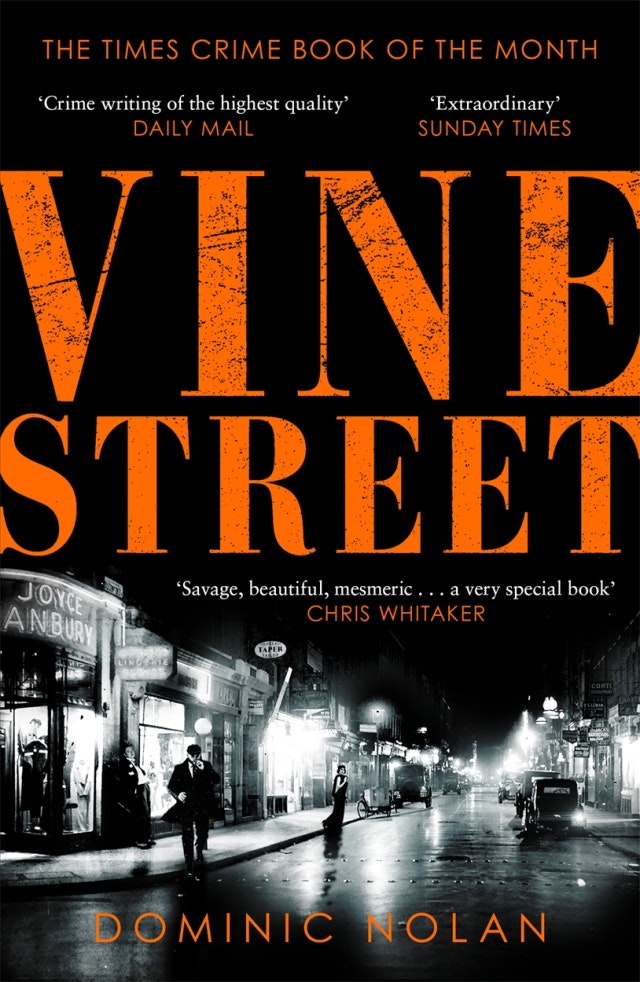
Summer beaches are a traditional occasion for delving into crime and there is much variety on offer. Nick Louth’s The Dark Edge (Canelo, 2025, £9.99), the third of his Detective Jan Talantire novels, is a brilliant work, ably-plotted, full of revelations, well-paced and written with skill, conviction, and some wit: “‘I wouldn’t trust him as far as I could throw him”, she said. She didn’t look strong enough to throw a tantrum … “Your name is rarer than rocking-horse manure”. Throughout, the interplay of reported speech and authorial comment works well in at once providing plot, perception and commentary. The death, in bad weather, in a fall from the coast of a runner who turns out to be a GCHQ employee appears a clearcut accident, with DNA and other evidence closing down options, but Talantire worries at the presence at the scene of others, including the demented mother of the runner, and finally finds and unravels a conspiracy the roots of which reflect inheritance, debts, and the struggle to maintain position. In practice, the precariousness of status is a context for the plot. The bullying and worse of women in the police force is another theme, although one that has been overused of late. It is as if writers clump together on themes. Nevertheless, Louth is ahead of most of the field. Indeed, this excellent novel will whet the appetite for more in this series.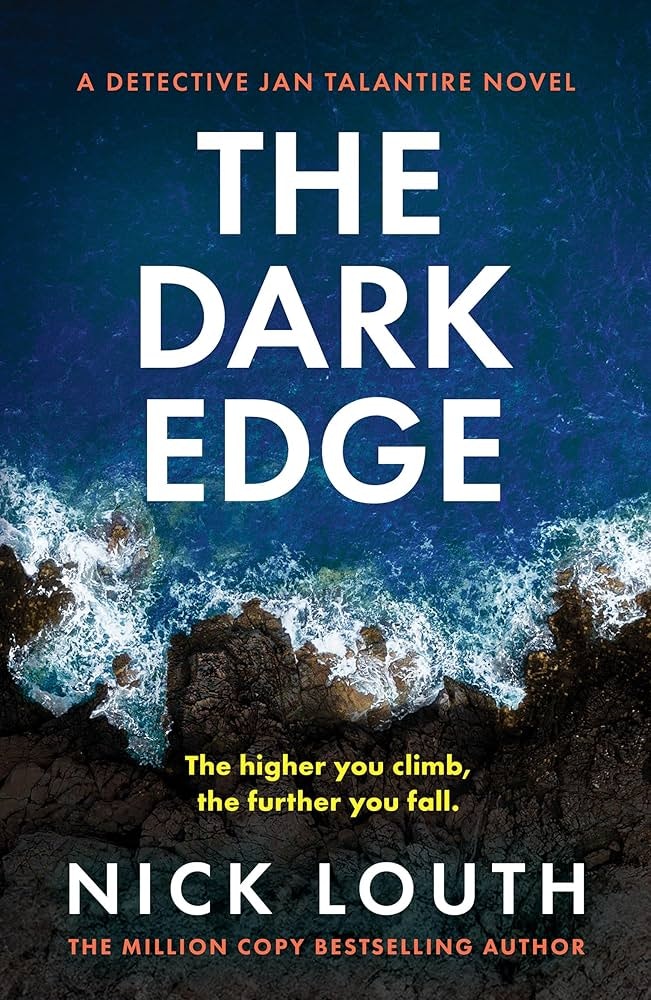
In contrast, with 26 titles already, Barbara Nadel’s Inspector Ikmen series is very well-established. The 27th, The Wooden Library (Headline, 2025, £22), is a highly-successful addition. All-too-frequently, series become formulaic, but Nadel has worked hard to deliver anew a sinuous plot with well-worked characters. Possibly the evil of the family patriarch is pushed too hard, but other characters work well as three-dimensional personalities of interest, while Istanbul is a vividly-etched backdrop. “This case just keeps on spreading out. We start with Şenol Ulusoy’s body and then we’re into family feuds, issues around inheritance, arcane books … and arcane poisons.” There are no slow periods or dull passages, but, instead, the working through of both plot and characters. The author depicted, Kemal, is also instructive: “Down here at the coal face of literature, one has to count every kuruş … Even the cheap rubbish I write isn’t selling these days. People are more concerned about paying their rent than they are about reading stories designed to give them false hope.” Fortunately, Nadel is able to offer much real hope in her first-rate story.
The current vogue for Japanese detective novels shows no signs of abating and has been encouraged by the range of the literature. Yasuhiko Nishizawa’s The Man Who Died Seven Times (1995; 2025, Pushkin Press, £14.99) uses the device of a time-loop in order to provide differing perspectives on the same events, and thus offer a new approach to the dramas of a family gathering. The narrator experiences:
the Trap … I’m condemned to repeat the same day over and over … Each loop lasts one full day … Once the Trap is activated, the only person who can intentionally follow a different course of action to the previous loop is me, because I’m the only one aware that time is caught in a loop … the Trap is a “condition” I’m subject to, not an “ability” I possess.
The death of his grandfather sets the plot in motion and provides an entrance into long-lasting family tensions. An arresting and interesting story that depends on a plot-device that will both please many and irritate others.
I usually pass on crimes against children and serial killers, and was uncomfortable with Alex North’s The Man Made Of Smoke (Penguin Michael Joseph, £18.99), but for fans of The Silence of the Lambs genre, this is a well-written work by the author of The Whisper Man. Old crime, relations between the generations, the normality of the monstrous, a bleak island setting “somewhere out of time where anything might happen”, the assumption of identities; they are all here as the protagonist, a
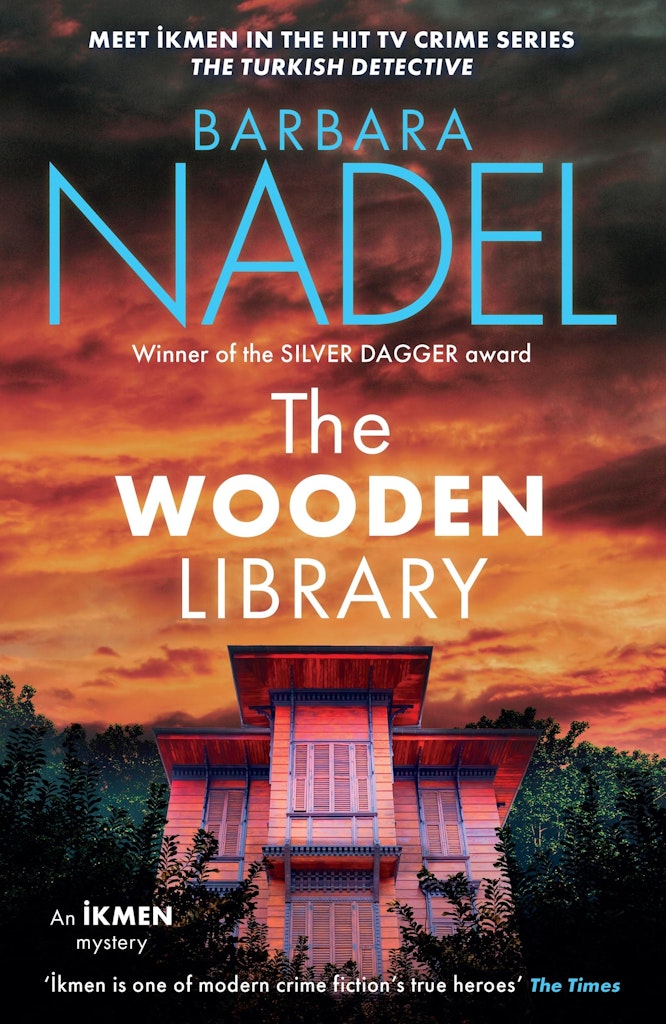
forensic psychiatrist, seeks answers about himself and his past, the two resolving into his present. At times the language is forced — “The stretch ofland was as thin as hair at first, but quickly grew larger, the island like a monster crawling through an ever-widening crack” — but, on the whole, works well and is a spare accompaniment to a well-worked plot and a skilful pace. A troubling novel that deserves to do well.
Disappearances, real and apparent, are central to Snaebjörn Arngrimsson’s One True Word (2022; Pushkin, 2025, £18.99) which offers Icelandic noir without ice at the forefront. The writing has elements of magic realism but also a strong sense of place and of the ellipses of personality.
Travis Kennedy’s The Whyte Python World Tour (Doubleday, 2025), is a somewhat zany Cold War thriller that lacks the requirements of the genre. Jesse Sutanto’s Vera Wong’s Unsolicited Advice for Murderers (HQ, 2023, £9.99) and her Vera Wong’s Guide to Snooping (on a Dead Man) (HQ, 2025, £9.99) are whimsical, cosy-style, Indonesian-set instances of crime solution capers that offer humour.
Cooking is a prime site for the genre, and successfully so with a few recent authors, notably Orlando Murrin. Danielle Valentine’s The Dead Husband Cookbook (Viper, 2025, £16.99) is less so, in part because of poor writing of the “A murmured voice, floorboards creaking … It was a bit like childbirth, how the memory of the pain seemed to disappear the moment you were no longer in it”, type … Her voice had a wrung-out quality to it” type, but also due to a somewhat precious tone that contributes to a narrator who irritates without purpose, and an author who somewhat plays at the role, not least while veering between would-be psychological thriller and attempted black comedy, with food in as canapés to whet the taste. May engage others, especially if bored, but did not capture me.
In contrast, Rose McDonagh’s One Came Back (Orion, 2025, £20) is the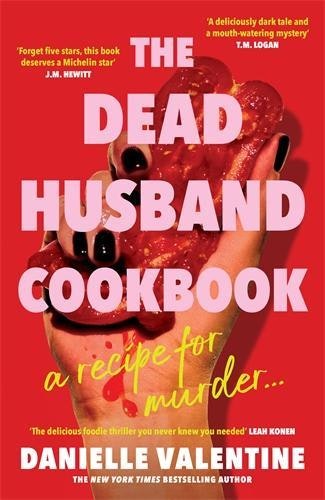 real thing, a concise account of Scottish-set obsession, with Emily troubled by an apparent return from the dead that may involve impersonation or her own troubled psyche. A debut novel of great interest.
real thing, a concise account of Scottish-set obsession, with Emily troubled by an apparent return from the dead that may involve impersonation or her own troubled psyche. A debut novel of great interest.
Readers of this series will know that I am a fan of the work of Simon Mason (the perfect antithesis to the dire Richard Osman), both the Ryan Wilkins Mysteries and the Finder Mysteries. A Voice in the Night (Riverrun, 2025, £16.99) is the fourth and latest in the former series. The discovery on a hotel lawn at Sandford of the pyjama-clad body of an irascible academic, Joe Emmett, who had been speaking in a debate the Oxford Union, launches Ryan Wilkins and Ray Wilkins, the very different detective inspectors of the series, into an investigation that spans the social range, including derelicts and hard men, as well as the more genteel and less obviously lawbreaking. Mason continues his very skilful direction of character, notably that of Ryan, adding to the mix Rebecca Wainwright, the new Detective Chief Superintendent, the talented but “face of New Policing”, troubled as is the case with detective fiction. The plot works very well, the characterisation and feel for place are excellent, the writing well-balanced, and the whole is a very satisfying offer from a highly accomplished writer whose works richly deserve attention. Possibly slightly less repetition on clothes for the future, and some variation on style: on page 13, for example, four successive sentences start with He.
Mark Ellis’s Death of an Officer (Headline, 2025, £10.99) takes his excellent existing series on London criminality during World War Two to a sixth title set in the spring of 1943. Starting with the murder of an Indian doctor, the plot rapidly spins forward to include the disappearance of an American officer involved in invasion planning, the life of an MP clearly modelled on Chips Channon, homosexual sex and brothels, police rivalries, organised crime, blackmail, corruption, and food, good and bad. Very well paced and plotted, ably written and with a good cast. Richly deserves to do well.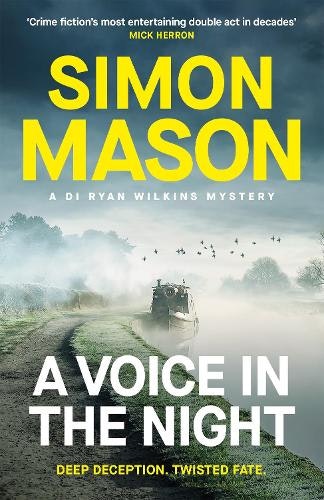
Garry Disher continues his run of successful Australian detective novels with Kittyhawk Down (Viper, 2025, £9.99), with the Mornington Peninsula revealed as a setting for multiple crimes, not least a flood of drugs. Detective Inspector Hal Challis makes a welcome return in a story that piles up the murders while adroitly shifting between the multiple plots, ending in a reveal that both surprises and is credible. Cold cases are interspersed with others that are all-too-immediate. Lowlife are sketched with a depressing vividness, but crime stretches to encompass the wealthy and pretentious. To cap it all, the correct length, rather than the all-too-frequent length of stupor.
Lynne McEwan’s In Dark Water (Canelo, 2021), £9.99), the first of the DI Shona Oliver series, begins well and fast, with the recovery of a corpse from the Solway Firth. We rapidly move onto drugs, trafficking and the exploitation of women. The setting is a world of margins, the margins of the Firth, of England and Scotland, and those of economic decay and social disorder. Without forcing style or imagery, this is a good read, honestly sober in its dealing with misery and able in its consideration of villainy.
Nightshade (Orion, 2025, £22) joins the mighty list of Michael Connelly novels and is a competent account of the discovery of a corpse at the bottom of a Californian harbour on Catalina Island, but, despite praise from the Times reviewer, this lacks the intensity and quality of his Harry Bosch series and, while exposing a “dark heart” to the island, simply misses the power of the writing and imaginative scope of James Ellroy. Instead, there is a tired feel of no point making an effort: “The seas were rough on the Express ride back to Catalina but things were smooth between Stil and Tash … The island felt like home to him. But he wasn’t sure he liked the idea of the rest of his life being predetermined.” It is all-rather-weak, and with the characters lacking dimensions. Best to stick to one of Connelly’s Bosch novels, or, better still, Ellroy.











